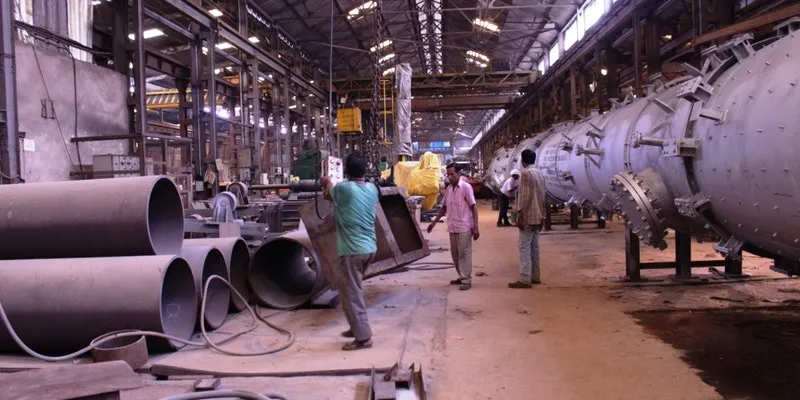How adapting to technology helped this family business bag a Rs 365Cr project from BHEL
BTL EPC Ltd is the manufacturing and engineering contracting unit of the Rs 1,000-crore Shrachi Group. It has over 100 clients in its kitty including the likes of SAIL, NALCO, BHEL, Ministry of Defense, Tata Steel, and L&T.
Shrachi Group is a well-known business conglomerate in Eastern India, especially West Bengal. The group was started by Ganesh Narayan and Brijlal Todi and carried forward by Brijlal’s son, SK Todi. After 50 years of running it, SK Todi handed the baton over to his sons, Ravi and Rahul.
Today, Shrachi Group is a Rs 1,000 crore business and has expanded into several verticals such agriculture, real estate, manufacturing, and engineering contracting, among others.
The Kolkata-based manufacturing and engineering unit, called BTL EPC Ltd, has now been bagging big projects. The turnkey solutions provider has more than 100 clients. Public sector units and government bodies such as BHEL, SAIL, NDMC, NALCO, and Ministry of Defense are among its clients. Private entities such as L&T and Tata Steel too have partnered with BTL EPC for projects. The company has more than 50 operating sites across India with more than a 1,000-strong workforce.
Recently, BTL EPC bagged a Rs 365 crore project from BHEL to set up a coal, limestone, and gypsum handling plant in Telangana’s Nalgonda District for 5X800 MW thermal power station, an initiative by the Telangana State Power Generation Corporation Ltd (TSGENCO).
In a conversation with SMBStory, Ravi Todi, Director of Shrachi Group, speaks of the journey of carrying forward the third-generation family business.

Manufacturing unit
The journey
It was towards the end of 1990s and early 2000s that the group got into manufacturing and engineering of coal handling plants. It executed projects worth Rs 1,500 crore with BHEL, Steel Authority of India, and NALCO, etc. Ravi got into the business in 2011.
Until then, the business was clocking a turnover of Rs 50 crore but with Ravi ushering in a lot of changes, the company’s turnover doubled to Rs 350 crore in a span of 5-6 years. He says, “I ensured that I implemented some systems and processes like ERP. I also introduced a younger and more professional team to handle the projects and ensure the safety standards are maintained.”
Ravi also tied up with international companies to supply materials. This includes a tie-up with US-based DMW Corporation to supply paddle feeder and ring granulator a coal handling plant project with Hinduja Vizag Thermal Power Plant. BTL EPC sources materials (mainly steel) from vendors like Tata Steel, Jindal, SAIL etc.
On the tie-ups, Ravi says, “We do project-based tie-ups because technology is very critical.” He also got PwC to monitor projects and systems.
All these changes were introduced to complement Ravi’s vision of thinking big. In the coming times, he is aiming for BTL EPC to reach a turnover of Rs 1,000 crore.

Manufacturing Unit
On challenges
But multi-crore companies have their own share of challenges, and for BTL EPC, the biggest has been financing. “Banks are not encouraging at all. They feel the sector is not doing very well,” Ravi says.
Another challenge that comes their way is the lack of skilled manpower in the country, which results in enormous delays in operations. Some projects of the company have been delayed by even two years due to a lack of skilled workforce.
To address these challenges, Ravi asks for government support. “When the government supports such companies, banks will also start showing support,” he says.
The company was initially more focused on coal and chemical plants. It has since diversified into various other sectors such as solar power and water transmission.
“The market is very uncertain these days, and expanding into other verticals seems like a wise decision to make,” Ravi adds.
The company’s solar power plant was set up in Dehradun and West Bengal some time ago and 3 water transmission projects in Jharkhand are underway.
Diversification, he notes, has helped the company build credentials in all sectors, adding that coal handling still remains their prime focus and strength.
Future plans
Ravi says that the only plan they have right now is to ensure that the current project is implemented successfully. “My future plan is to consolidate the core businesses, look at getting valuation of the other businesses and create an exit plan to reduce debt.”
(Edited by Evelyn Ratnakumar)









